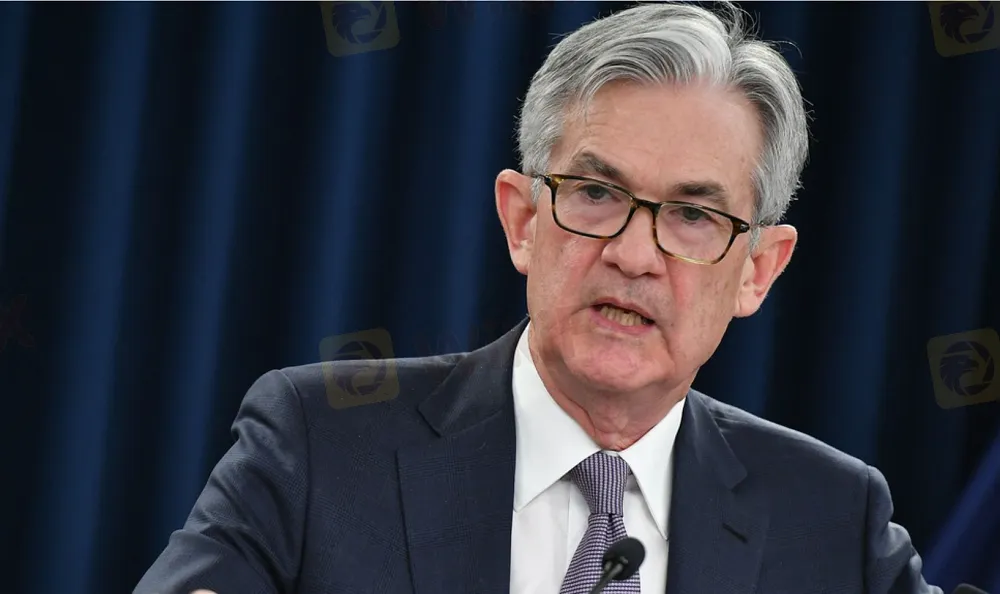简体中文
繁體中文
English
Pусский
日本語
ภาษาไทย
Tiếng Việt
Bahasa Indonesia
Español
हिन्दी
Filippiiniläinen
Français
Deutsch
Português
Türkçe
한국어
العربية
Powell Says Fed Will Fix Inflation
Abstract:Calling stable prices the “bedrock” of the economy
Calling stable prices the “bedrock” of the economy, Federal Reserve Chair Jerome Powell said on Thursday that the U.S. central bank's battle to control inflation would “include some pain” as the impact of higher interest rates is felt, but that the worse outcome would be for prices to continue speeding ahead.
“We fully understand and appreciate how painful inflation is,” Powell said in an interview with the Marketplace national radio program, repeating his expectation that the Fed will raise interest rates by half a percentage point at each of its next two policy meetings while pledging that if data turn the wrong way “we're prepared to do more.”

“Nothing in the economy works, the economy doesnt work for anybody without price stability,” Powell said. “We went through periods in our history where inflation was quite high ... The process of getting inflation down to 2% will also include some pain, but ultimately the most painful thing would be if we were to fail to deal with it and inflation were to get entrenched in the economy at high levels, and we know what that's like. And that's just people losing the value of their paycheck.”
The U.S. economy is facing its toughest inflation problem since the 1970s and early 1980s, when prices at one point rose at an annual rate of 14.5% and then-Fed chief Paul Volcker used punishing interest rates to twice throw the economy into recession. The unemployment rate climbed above 10%.
Powell, who was confirmed earlier on Thursday to a second four-year term as Fed chief on a bipartisan 80-19 vote in the U.S. Senate, has paid frequent homage to Volcker's commitment to beating inflation, while also saying he believes the U.S. central bank this time can navigate the economy to a “soft landing” where inflation falls without a downturn or significant increase in joblessness.
Interest rates are rising sharply as a result of the policy steps engineered by Powell. While neither inflation nor borrowing costs are approaching Volcker-era levels, the quick run-up in the cost of food, gas, housing and other daily staples has become a politically explosive issue for President Joe Biden's administration. Consumer prices in April were 8.3% higher than a year ago.
Biden now has filled the top two Fed jobs and seen two of his other appointees confirmed to the central bank's seven-seat Board of Governors. The president made clear this week he was giving them full sway to try to lower inflation.
“Tackling inflation is my top domestic priority,” Biden said following Powell's confirmation by the Senate. The Fed “will bring the skill and knowledge needed at this critical time for our economy and families across the country.”
Powell, who opened a news conference after last week's policy meeting by saying he wanted to “restore price stability on behalf of American families,” used the radio interview on Thursday to amplify that broad message to the public.
Disclaimer:
The views in this article only represent the author's personal views, and do not constitute investment advice on this platform. This platform does not guarantee the accuracy, completeness and timeliness of the information in the article, and will not be liable for any loss caused by the use of or reliance on the information in the article.
Read more

FED meeting minutes strongly hint at a rate cut in September; US dollar index falls to new low this year!
The U.S. Bureau of Labor Statistics revised down the employment growth in the year ending in March by 818,000, an average monthly decrease of about 68,000, the largest downward revision since 2009. The substantial downward revision of employment data re-emphasized the severity and necessity of the U.S. employment problem, paving the way for a rate hike in September. Bearish for the U.S. dollar.

Gold Price Tops $2500 For the First Time
Gold prices soared above the $2,500 mark for the first time, driven by expectations of potential interest rate cuts, which have weakened the dollar to its recent low levels. Market participants are now focused on Wednesday’s FOMC meeting minutes for insights into the Fed’s next monetary policy moves.

What new signals does the Federal Reserve have? FED Governor Michelle Bowman reiterates the risk of inflation!
Fed Governor Bowman: There are upside risks to inflation, the labor market continues to strengthen, and a cautious attitude will be maintained at the September meeting. Boston Fed President Collins: If the data is as expected, it would be appropriate to start easing policy "soon". Inflationary pressure will slow down the pace of U.S. interest rate cuts, which will be bullish for the dollar.

GEMFOREX - weekly analysis
The week ahead – Top 5 things to watch
WikiFX Broker
Latest News
Two Californians Indicted for $22 Million Crypto and NFT Fraud
RM62k Lost Investment Scam After Joining XRP Community Malaysia on Telegram
Victims of Financial Fraud in France Suffer Annual Losses of at Least €500 Million
WikiFX Review: Is Ultima Markets Legit?
Colorado Duo Accused of $8M Investment Fraud Scheme
What Impact Does Japan’s Positive Output Gap Have on the Yen?
Macro Markets: Is It Worth Your Investment?
Trading is an Endless Journey
Malaysia Pioneers Zakat Payments with Cryptocurrencies
FCA's Warning to Brokers: Don't Ignore!
Currency Calculator


